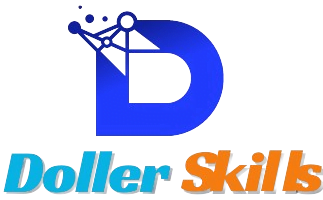
Introduction to AI and Blockchain
Artificial Intelligence (AI) and Blockchain are two transformative technologies that have garnered significant attention in recent years. AI refers to the simulation of human intelligence processes by machines, especially computer systems. These processes include learning, reasoning, and self-correction, enabling machines to analyze vast datasets and make predictions or decisions based on that information. In contrast, Blockchain is a decentralized digital ledger technology that records transactions across multiple computers in a secure and transparent manner. Each block in a blockchain contains data, a timestamp, and a cryptographic hash of the previous block, creating an immutable chain of records.
The unique characteristics of AI lie in its ability to process and learn from data, leading to enhanced automation and predictive capabilities across various sectors. Industries such as healthcare, finance, and manufacturing are rapidly adopting AI solutions to optimize operations and improve efficiency. For instance, AI-powered algorithms can analyze patient data for better diagnosis or assess market trends to inform investment strategies. On the other hand, Blockchain technology’s defining feature is its focus on security and transparency. It eliminates the need for intermediaries in transactions, thereby reducing costs and enhancing trust. Financial institutions, supply chains, and even governmental organizations are leveraging blockchain to improve transaction security and data integrity.
As both AI and Blockchain technologies continue to evolve, they are profoundly shaping the landscape of numerous industries. Understanding these technologies is crucial for individuals considering their career paths in the coming years. The decision between pursuing skills in AI or Blockchain should be influenced not only by personal interests but also by examining the potential for income growth and job opportunities in these fields. With both technologies showing substantial growth, professionals who acquire skills in either domain are likely to find themselves in high demand by 2025.
Current Trends in AI and Blockchain
The rapid evolution of technology has placed both Artificial Intelligence (AI) and Blockchain at the forefront of digital transformation. Each of these technologies is evolving, ushering in an array of applications across various sectors. AI, often valued for its ability to analyze data, drive automation, and enhance decision-making processes, is primarily being leveraged in areas such as healthcare, finance, and customer service. For instance, AI-driven algorithms are facilitating predictive analytics, thereby improving patient outcomes in healthcare and optimizing supply chain processes in retail.
Conversely, Blockchain technology is gaining traction due to its promise of security, transparency, and decentralization. Originally developed for cryptocurrency, its application has expanded into sectors like finance, where it is used for secure transactions, and supply chain management, ensuring traceability and accountability. Recent case studies demonstrate how companies are integrating Blockchain to enhance data integrity and trust, thus vastly improving operational efficiency.
Statistically, the landscape for both technologies looks promising. Reports suggest that the AI market could reach a valuation of $390 billion by 2025, signifying a robust growth trajectory. On the other hand, the Blockchain market is projected to expand at a compound annual growth rate (CAGR) of over 67%, potentially reaching a value of $23.3 billion within the same period. These figures highlight a clear trend: both AI and Blockchain are not only disruptive technologies but also avenues of high demand for skilled professionals.
As organizations increasingly adopt these technologies, professionals equipped with knowledge and skills in AI and Blockchain will likely find themselves in advantageous positions. With numerous applications surfacing daily, it is crucial for individuals to stay informed and adapt to these dynamic fields to forge a successful career path.
Career Opportunities in AI
The field of Artificial Intelligence (AI) is rapidly expanding, presenting a variety of career opportunities that promise high income and job security. With advancements in technology, organizations are increasingly seeking professionals who possess the skills to harness data and develop innovative AI solutions. Key job roles in this domain include Data Scientist, Machine Learning Engineer, and AI Architect, each requiring a unique set of skills and expertise.
A Data Scientist primarily focuses on analyzing and interpreting complex data to derive actionable insights. Candidates aspiring to become data scientists should have strong statistical knowledge, proficiency in programming languages like Python or R, and a solid understanding of data visualization tools. According to industry reports, the average salary for a Data Scientist can exceed $100,000 annually, with significant growth expected over the next few years as businesses continue to prioritize data-driven decision-making.
Another prominent role is that of a Machine Learning Engineer, who specializes in designing and implementing algorithms that allow machines to learn from data. This position demands expertise in advanced mathematics, coding skills, and familiarity with machine learning frameworks such as TensorFlow or PyTorch. The salary for a Machine Learning Engineer is projected to be around $110,000 annually, with robust job growth anticipated as companies increasingly automate processes and integrate AI into their operations.
Lastly, AI Architects play a critical role in creating AI frameworks and overseeing system deployment. Strong technical skills in AI infrastructure, cloud technologies, and collaborative problem-solving are essential for this role. The average salary for an AI Architect can reach upwards of $130,000, indicating a high demand for these professionals as organizations continue to invest in AI-centered solutions. By 2025, the job market for AI roles is expected to grow exponentially, making this an advantageous field to pursue for those seeking lucrative career opportunities.
Career Opportunities in Blockchain
The blockchain sector is rapidly expanding, providing a wealth of career opportunities that cater to individuals with various skill sets. As this decentralized technology gains traction across diverse industries, the demand for professionals who understand blockchain’s intricacies continues to grow. Key job roles include Blockchain Developer, Smart Contract Engineer, and Crypto Analyst, each requiring a unique blend of skills.
Blockchain Developers are at the forefront of this technology, responsible for designing, implementing, and maintaining blockchain applications. The essential skills for this role encompass proficiency in programming languages such as Solidity, Java, and Python, alongside a deep comprehension of distributed ledger technology. According to recent industry reports, the average salary for a Blockchain Developer can range significantly, often exceeding six figures, reflecting the high demand for such expertise.
Smart Contract Engineers focus on creating and managing self-executing contracts on blockchain platforms. This role demands not only programming skills but also knowledge of legal frameworks and compliance issues related to blockchain transactions. Expertise in platforms like Ethereum is essential. With the growth of DeFi (Decentralized Finance), Smart Contract Engineers are becoming increasingly sought after, with salaries that can reach well into the six-figure range depending on experience and project scale.
Crypto Analysts, on the other hand, play a critical role in monitoring and analyzing cryptocurrency markets and assessing investment opportunities. They must possess strong analytical skills, a solid understanding of market trends, and familiarity with various cryptocurrencies. While salaries for Crypto Analysts vary based on experience, they can also command competitive compensation, particularly as organizations prioritize informed decision-making in this volatile market.
As blockchain technology continues to evolve and integrate into different sectors, these job roles will adapt, emphasizing the necessity for continuous learning and adaptability. Professionals seeking a high-income career in the blockchain domain should focus on developing technical skills, understanding market dynamics, and staying informed about emerging trends.
Comparative Analysis: AI vs. Blockchain Skills Demand
The demand for specialized skills in both Artificial Intelligence (AI) and Blockchain technology has intensified in recent years, fueled by their transformative potential across numerous sectors. As we look towards 2025, it becomes vital to analyze the current job market to determine which skills are in higher demand and forecast future trends to guide aspiring professionals in their career paths.
In the realm of AI, proficiency in machine learning, data analysis, and neural networks are becoming increasingly essential. The industry is rapidly evolving, with companies seeking professionals who can develop algorithms that enhance automation and decision-making processes. Programming languages such as Python and R are widely regarded as fundamental, as they are integral to developing AI models. Furthermore, skills related to ethical AI practices are gaining traction, as businesses recognize the importance of ensuring their AI implementations are responsible and equitable.
On the other hand, Blockchain demands a different skill set. Knowledge in smart contracts, decentralized applications (DApps), and cryptographic security is crucial for success in this field. Proficiency in programming languages like Solidity, which is specifically designed for writing smart contracts, is increasingly sought after. Additionally, understanding the principles of distributed ledger technology (DLT) and the ability to design solutions for supply chain management, financial transactions, and digital identity verification are becoming vital competencies within the Blockchain domain.
While both AI and Blockchain present lucrative career opportunities, the current job market shows a slightly higher demand for AI-related skills due to their immediate applicability across industries. However, emerging trends suggest that as Blockchain technology matures and becomes more integrated into business operations, the demand for expertise in this area will also rise significantly. Thus, individuals aiming for a high-income career by 2025 should consider balancing their skills across both AI and Blockchain to remain competitive and relevant in an ever-evolving job landscape.
Future Learning: Skills to Acquire by 2025
As we approach 2025, the landscape of technology is evolving rapidly, making it essential for individuals to acquire specific skills to thrive in the fields of Artificial Intelligence (AI) and Blockchain. Both sectors are not only developing at an unprecedented pace but are also entwined, making a hybrid skill set increasingly valuable in the job market. This section aims to provide an overview of essential skills that aspirants should focus on, ensuring they remain competitive.
Technical proficiency remains paramount. For AI enthusiasts, mastering programming languages such as Python is critical. Python’s versatility and extensive libraries like TensorFlow and PyTorch enhance its utility in machine learning projects. Additionally, proficiency in R and Java can be beneficial for statistical computing and software development respectively. On the other hand, Blockchain specialists should concentrate on learning languages like Solidity and Go, which cater to smart contracts and decentralized applications. Familiarity with platforms like Ethereum and Hyperledger is also advisable, providing a comprehensive understanding of different blockchain frameworks.
Beyond technical skills, complementary competencies play an equally important role. Data analysis and problem-solving abilities can greatly enhance one’s effectiveness in either domain. Critical thinking helps individuals to devise innovative solutions in AI, while strategic thinking is essential for navigating the complexities of blockchain technology. Furthermore, understanding data ethics and cybersecurity measures are essential to ensure responsible application of AI and Blockchain solutions.
The importance of continuous learning cannot be overstated. Engaging in professional development through online courses, workshops, and industry certifications will not only bolster one’s knowledge base but also enhance employability. Staying updated on advancements in these fields, along with networking, will prepare individuals for emerging opportunities, thus establishing a robust foundation for a successful career in the future job market.
High Income Skills for 2025
As the landscape of technology evolves, the demand for specialized skills continues to rise, especially in the realms of Artificial Intelligence (AI) and Blockchain technology. By 2025, numerous skills in these areas are anticipated to offer significant earning potential, reflecting the ongoing digital transformation across various industries. Understanding these skills and their corresponding salary ranges can provide valuable insights for professionals seeking to enhance their career prospects.
In the field of AI, expertise in machine learning and data science is projected to be particularly lucrative. Professionals who can develop machine learning models and analyze vast datasets are highly sought after. Entry-level positions in this area may offer salaries ranging from $75,000 to $100,000, while more experienced roles can command upwards of $150,000. Specialization in deep learning techniques and natural language processing can further elevate a professional’s earning potential, with elite roles in these niches potentially exceeding $200,000 annually.
Conversely, Blockchain technology is also gaining traction as a high-income skill set. Knowledge of smart contract development, cryptographic protocols, and decentralized application (DApp) creation can lead to rewarding job opportunities. Entry-level roles here generally start at around $80,000, with mid-level positions ranging from $120,000 to $160,000. For those who develop a strong specialization in Blockchain architecture or become renowned experts within the ecosystem, annual earnings may surpass $250,000.
By pursuing these in-demand skills, professionals can position themselves for success in the ever-evolving job market. Continuous learning and adaptation to the changing technology landscape will be critical in maximizing earning potential in 2025 and beyond. Achieving proficiency in AI and Blockchain will not only enhance career prospects but also allow individuals to contribute meaningfully to the innovations of the future.
Influence of Industry on Skill Demand
The rapid adoption of Artificial Intelligence (AI) and Blockchain technologies across various industries is reshaping the landscape of demanded skills. As sectors such as finance, healthcare, and logistics evolve to integrate these innovations, the need for specific competencies is becoming increasingly apparent. Understanding how these technologies penetrate industry practices can help individuals tailor their learning paths, ensuring alignment with market needs.
In the finance sector, for instance, AI has emerged as a transformational force, enhancing risk assessment and automating trading processes. Professionals equipped with skills in data analysis, machine learning, and algorithmic trading are highly sought after. Meanwhile, Blockchain technology has provided the potential for increased transparency and security in financial transactions. Thus, knowledge of Blockchain implementation and smart contract development is becoming critical for those aiming to thrive in this dynamically evolving environment.
Healthcare, too, is witnessing a substantial transformation, fueled by the integration of AI and Blockchain. AI applications in diagnostics, patient data analysis, and treatment personalization are gaining traction. Individuals proficient in AI-related fields, especially in health informatics, will likely find appealing opportunities. Concurrently, the potential for Blockchain to securely manage patient records and facilitate data sharing highlights the need for expertise in this area, making it an attractive skill set for future healthcare professionals.
Similarly, the logistics industry is leveraging AI and Blockchain technologies to streamline operations and enhance supply chain transparency. Proficiency in logistics analytics and Blockchain project management are skills increasingly required by employers in this sector. The ability to analyze large datasets and manage decentralized ledgers will become essential as companies strive to improve efficiency and trust in their supply chains.
Overall, as industries adapt to the advancements brought about by AI and Blockchain, the demand for relevant skills is on the rise. By staying informed about these trends, individuals can strategically focus their learning efforts on the skills that will be most in demand in the coming years.
Conclusion: Making an Informed Decision
As we consider the evolving landscape of technology and employment, the debate between pursuing skills in artificial intelligence (AI) and blockchain technology becomes increasingly relevant. Both sectors offer unique advantages, high earning potential, and the opportunity for professional growth, making them attractive options for individuals looking to enhance their careers by 2025.
Artificial intelligence is rapidly transforming various industries through advancements in machine learning, data analysis, and automation. By mastering AI, professionals can engage in projects that significantly impact sectors such as healthcare, finance, and transportation. Simultaneously, the blockchain technology revolution is redefining concepts of security, transparency, and trust in digital transactions. With applications spanning from decentralized finance to supply chain management, expertise in blockchain can elevate an individual’s career prospects in numerous industries.
Ultimately, the decision on whether to focus on AI, blockchain, or potentially both should hinge on personal interests and strengths. Individuals passionate about creative problem-solving, data interpretation, and algorithmic thinking may find themselves more inclined toward a career in AI. Conversely, those intrigued by concepts of decentralization, cryptography, and ledger systems might thrive in blockchain roles. Additionally, as both fields continue to intersect, having a foundational understanding of both technologies could present unique opportunities and enhance one’s marketability, making it easier to navigate this evolving employment landscape.
In conclusion, weighing the merits of each technology along with individual capabilities and preferences is vital for a successful career in the tech arena. By strategically aligning personal strengths with the skills required in either artificial intelligence or blockchain, individuals can foster sustained career growth and satisfaction in a rapidly changing job market.

